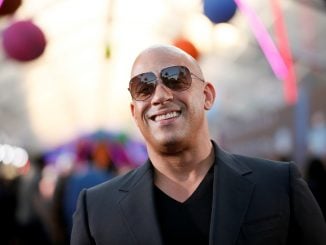KINSTON — Names are given to us at birth. A name is uniquely ours and the one thing that follows us wherever we go. As life progresses, our names are associated with character traits, accomplishments, tragedies, and triumphs. It is not our names that define us, but it is we who define our names.
In the eastern North Carolina town of Kinston, you’ll find Elizabeth and Robin Wooten. A couple devoted to their love of one another, their children, their faith, and their community. They met at a Halloween party more than 30 years ago, as young teens.
“I just knew it was him. On the first date, I knew he was the boy I was going to marry,” said Elizabeth. “By the third date he told me he loved me. I’ve never dated anybody else. He’s the one I’ve known my whole life.”
They married in 1989, moved to Kinston where Robin grew up, and raised two daughters, Olivia Whitford, 25, and Carrington, 21. Robin worked long hours as a financial advisor for BB&T, they were “strict parents,” and spent much time together as a family.
“I can see now our whole lives together led up to this point,” said Elizabeth.
“I know my time is coming to an end,” said Robin.
In the fall of 2016, Robin was diagnosed with ALS.
ALS, or amyotrophic lateral sclerosis, is a progressive neurodegenerative disease that affects nerve cells in the brain and the spinal cord. It’s an illness that causes the motor neurons inside the spinal cord to die. Muscles deteriorate over time and eventually one loses the ability to speak, move, swallow, and breathe. Known also as Lou Gehrig’s disease, there are fewer than 20,000 cases in the United States each year.
“I had lost the strength in my left hand. There were twitches in my muscles, arms, and back,” he said.
Tests, scans, and conversations with friends, who were also neurologists, left him with the inevitable.
“I asked him, ‘Is there a treatment?'”
“No.”
“Is there a cure?”
“No.”
“Is it terminal?”
“Yes.”
“How long do I have?”
“Probably six to 18 months.”
“I had tests to rule everything out AIDS, Lyme disease, cancer, celiac disease they were all negative. ALS was left,” said Robin.
Elizabeth and Robin knew of his ALS diagnosis a month before sitting down with their children to share the news of how their life as a family would change.
“He wanted to bring the girls home, turn off all technology, and tell them properly. I admired that about him,” said Elizabeth.
“He is a man of very little words. I have known him 33 years and have seen him cry once when his Labrador died. That weekend we cried, we ate junk food, we hugged,” she added.
Robin wanted to do something with the time he had left. He made a bucket list to which he refers to as a “pretty simple list.” He spent time in the mountains of Western Carolina, visited the Biltmore at Christmastime, ventured to Ocracoke, met Travis Cottrell, and ventured to New York City to visit the stock exchange. He purchased Christmas gifts that his family members could always remember him by.
“Everything I love is in North Carolina,” said Robin. “I wanted to revisit places close to home.”
“ALS is such a huge illness. It’s overwhelming. You lose the use of your limbs, your speech, your diaphragm, your ability to breathe. Every aspect of life you have control over is gone. We believe you give control to the Lord,” said Elizabeth. “What other hope is there? We believe God is ruler over everything and can’t imagine how terrifying this would be if we thought otherwise.”
“ALS takes everything but your mind. He will be able to spend all that time talking with Jesus. This is a great way for preparing him to be able to enter heaven and be ready. This is a gift,” she continued.
“We know our plans aren’t always the Lord’s plans. This is not the way we planned our life,” she added. “I can’t imagine my life without him.”
While the days are spent with laughter and love, some days Robin gets angry over his diagnosis, and other days he gets sad. Recently, Robin and a friend went hunting.
“I’ve always loved to hunt and fish. I can no longer climb in the deer stand, and I have to sit on the ground. I’m left-handed, and I’ve lost most of the strength in my left arm,” he said. “My friend shot a deer from the stand. I got so mad because what is so simple for others is so hard for me.”
Robin and Elizabeth imagined spending their senior years at the beach.
“I look at our dreams, plans and they’ve gone by the wayside. It gets sad,” said Robin, “but I’m not afraid. I win either way. I may have a terminal diagnosis, but I will make the best use of the time I have left.”
“What are we supposed to do with this? We don’t know. We do know God has a purpose, and we are trying to figure out that purpose,” said Elizabeth.
“We have a very loving family. Everyone in this family is considerate and respectful, which was stressed when we were growing up,” said Carrington.
Whitford added, “When I was little, I remember my dad always told us, every single night, all you have in this world is your name. Everyday how are you going to treat that name, and how are you going to treat people?'”
One treats people with kindness and respect. One consistently supports and helps others. One puts others before themselves. One remains positive in the face of adversity. As Elizabeth noted your name “is the only thing you can take with you.”
Robin has treated his name well.



